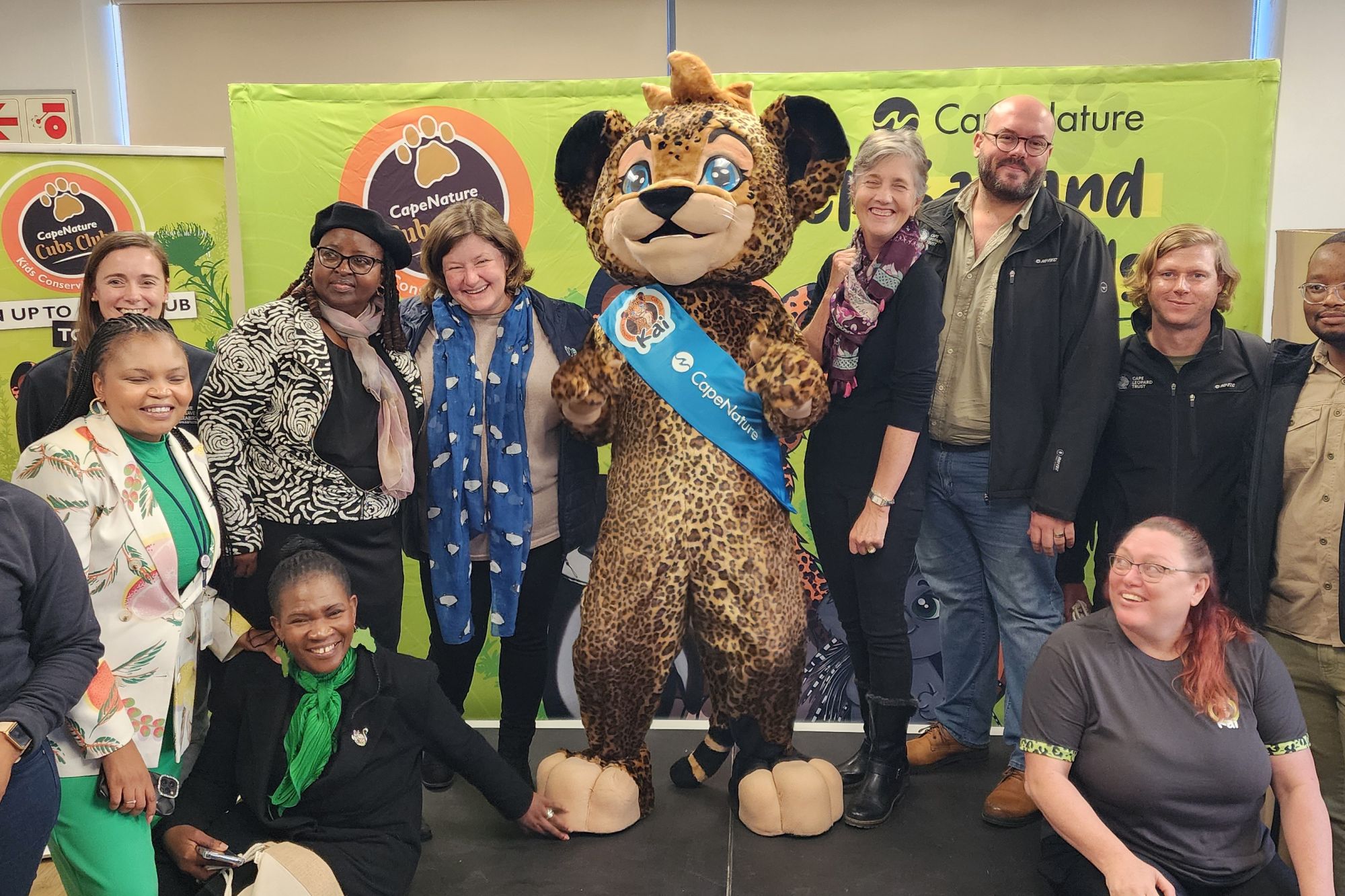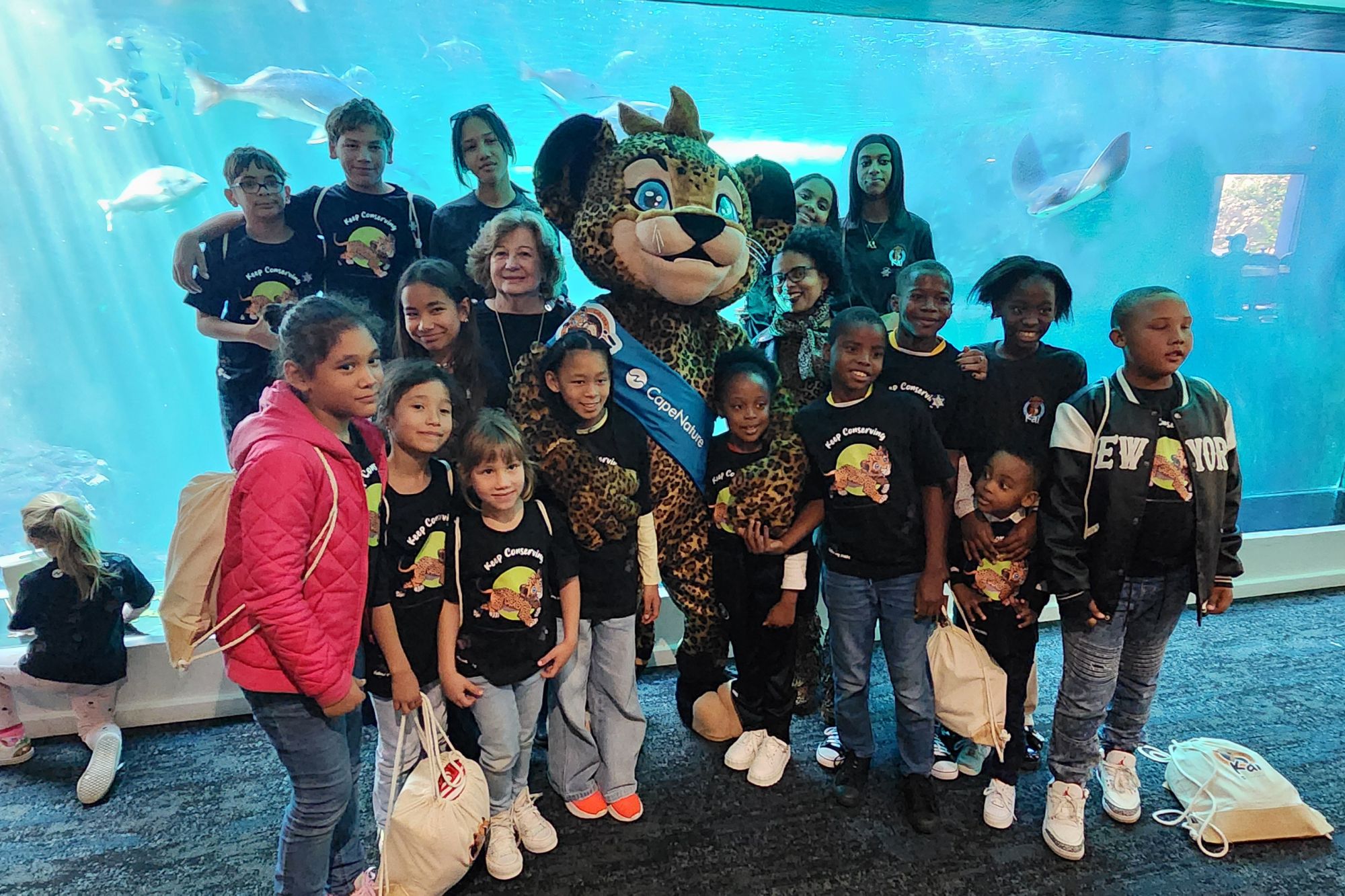
The secret of CapeNature’s new ambassador is out!
CapeNature is thrilled to announce the identity of its new Cubs Club ambassador, Kai the Cape leopard cub. Kai was introduced to the public and a group of Cubs Club members on Friday, 5 July 2024, for the very first time.
Kai will be the face of CapeNature, bringing his charisma and charm to the Cubs Club. Nature lovers and Cubs Club members alike will soon become familiar with Kai and his unique personality and love of learning new things. Cape leopards are found in the Western Cape and inhabit rugged mountain areas and fynbos-covered valleys in the province. Smaller in size than other African leopards, they possess unique markings and demonstrate remarkable agility and adaptability.
CapeNature CEO Dr Ashley Naidoo expressed enthusiasm for the Entity’s newest member and his belief that Kai’s success is CapeNature’s success.
“Cape leopards are apex predators, and their wellbeing indicates a healthy ecosystem. If they do well, it means the entire environment they inhabit is thriving. Kai, as a young cub, symbolises the potential for growth and the importance of nurturing our natural world.
“His quest for knowledge and eagerness to explore captures the spirit of our curious young Cubs Club members who represent our future conservation champions,” says Dr Naidoo.
He adds, “Kai’s name, which means fighter, warrior, and protector of the Earth, reflects his future role as a guardian of nature. His unique appearance, with a black left back foot devoid of spots, emphasises the beauty of diversity and individuality while championing the little differences that make us all unique.”
As the Cubs Club ambassador, Kai will play a pivotal role in promoting environmental awareness and positive conservation behaviours among children. His mission is to inspire people of all ages to appreciate and protect nature. Over the next year, Kai will visit CapeNature reserves, participate in public events, and engage with children in previously disadvantaged schools through CapeNature’s curriculum-aligned programs. Exciting competitions and interactive events featuring Kai will be announced on social media throughout the year.
The CapeNature Cubs Club is a digital platform for children aged four to 13, offering educational resources and incentives to engage in environmental action projects. Members receive a welcome pack, birthday accommodation discounts, and invitations to exclusive events.
For more information on the Cubs Club or to sign up, parents and group leaders can email learning@capenature.co.za






